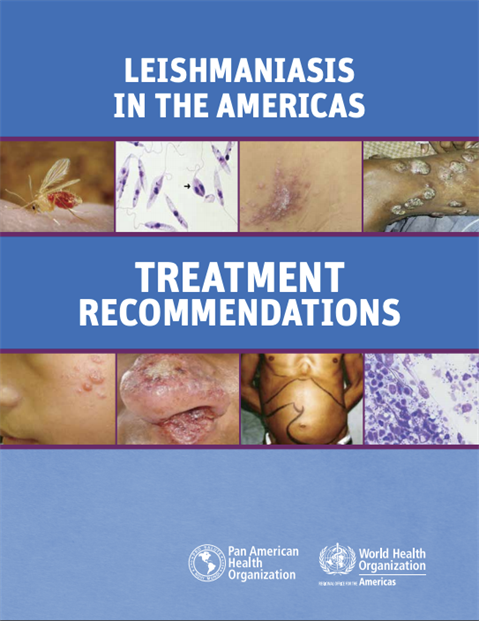Leishmaniasis in the Americas.
Recommendations for the treatment; 2013

Overview
The new guidelines adapt and update previous WHO recommendations for the Region, based on WHO standards for guideline development, and take into account the specific characteristics of the leishmaniases in the Americas, differences in the organization of health services in the Region, evidence from recent studies on treatment, and the need to provide recommendations for specific questions not previously addressed.
This publication aims to disseminate knowledge and serve as a tool for health professionals who work directly with these diseases, assisting national leishmaniasis control programs in strengthening therapeutic alternatives by improving the standardization, organization, and accessibility of health services for those affected by leishmaniases in the Americas.
In addition, these guidelines underscore the need to include all scientific evidence on leishmanias available in each country in the national control programs, taking into consideration the idiosyncrasies of the circulating parasite species and clinical features of the disease as well as the ways in which those affected by it access health services. They also highlight the need to conduct controlled clinical trials to assess newly available treatment alternatives—particularly local treatments—to generate further evidence on their efficacy and safety in the Latin American context.
